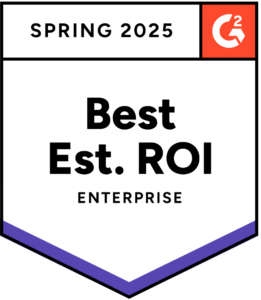What Are Fixed Assets?
Blog post
Share
A fixed asset is any tangible item that enables or supports a company’s operation and that has monetary value. Fixed assets range from land, buildings and vehicles to machinery, heavy equipment, furniture and computers. The number and type of fixed assets a business owns depends largely on the business type. A large manufacturer, for instance, will typically own far more fixed assets than a consultancy.
Differentiating Other Assets from Fixed Assets
Fixed assets are defined as tangible things that support the business and add monetary value. But there is one more criterion that a fixed asset must meet: it must be intended to last for more than a year. With that in mind, it then becomes clear that not all tangible items a company uses to produce monetary value are fixed assets.
For instance, a fast food restaurant will purchase lots of plastic forks, spoons and napkins. But, although they are tangible (you can touch them), they are not fixed assets because they are disposed of quickly. In addition, cash is definitely an asset, but not a fixed asset because the cash that comes into the cash register today may well be spent next week.
There is also a difference between a fixed asset and a business expense. For example, paper clips are both tangible and durable (they’ll probably last more than a year), but because they have low monetary value, they are not considered fixed assets. Instead, they are written off as a business expense.
Why Companies Own Fixed Assets
Companies invest in fixed assets for a variety of reasons:
- Some fixed assets, such as machinery, help the company generate revenue by enabling the production of saleable goods.
- Companies often build or purchase buildings that are central to their revenue-generating efforts. Ex. restaurants, factories or movie theaters
- Other fixed assets, such as buildings that act as a company headquarters, are not part of the revenue generation equation, but act as a platform from which the business can be directed.
- Some companies create fixed assets and then generate income from them by renting them to third parties. Ex. parking lots and office space
- Fixed assets also have indirect value in that they can be used as collateral for a business loan.
Understanding Depreciation
Fixed assets do not retain their original value indefinitely. Instead, they gradually lose value over time in a process known as depreciation. There are a variety of reasons fixed assets depreciate, for example, wear and tear and obsolescence.
How quickly a fixed asset depreciates will depend on the amount of wear and tear it is subjected to and the type of asset (computer assets tend to depreciate quickly). Even changing real estate market dynamics can affect things like the value of a company headquarters building.
Calculating Depreciation
There are several ways depreciation can be calculated. For fixed assets, the two primary ways are straight line and declining balance. Using the straight-line method, an equal amount of value is subtracted from the asset every year. In the declining balance method, greater amounts of value are subtracted from the asset during the early years of ownership and the amount of depreciation slows as the years go on.
FAQs
Why do companies accumulate fixed assets?
Fixed assets are necessary to enable the business to generate economic value. Even a “virtual” business, such as an online store, will have fixed assets that may include a computer server to host the website, laptops and other equipment, office furniture and a facility for storing products sold online.
How are fixed assets accounted for?
Fixed assets are typically recorded in the balance sheet along with other non-current assets in the accounting category called “Property, Plant & Equipment”. The calculation involved in recording the value of fixed assets goes like this:
Total value of fixed assets – Depreciation of assets = Net value of fixed assets
Summary
What are fixed assets? Fixed assets are tangible items intended to last more than a year that a company purchases in order to facilitate income generation. Buildings, heavy machinery, factory equipment, trucks and more are all examples of fixed assets. Fixed assets can also be used as collateral to secure business loans or sold to generate cash. Over time, all fixed assets lose value in a process known as depreciation.
Learn more in our Finance & Accounting Glossary









